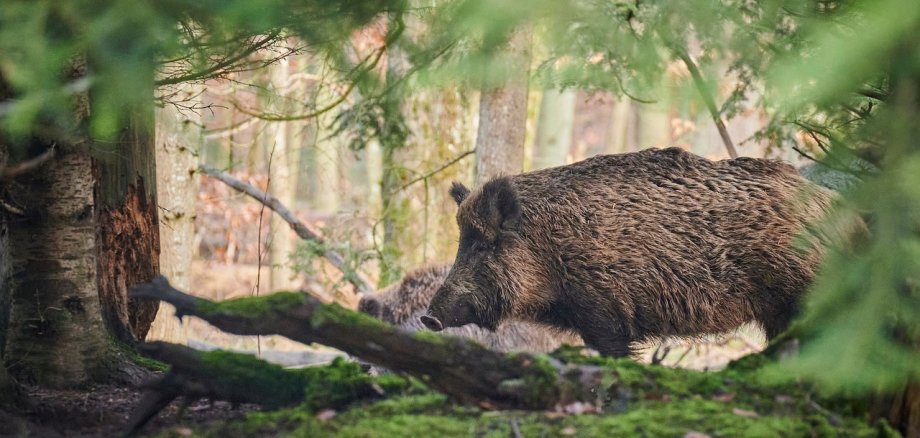County in favour of preventive protection against African swine fever
A few weeks ago, African swine fever (ASF) was detected for the first time in a dead wild boar in Hesse. This has further increased the risk of the disease being introduced into other regions. Whether thorough hygiene and cleaning, avoiding contact between domestic and wild pigs, controlled feeding, close-meshed sampling, hunting or careful handling of food: The district has been preparing for a possible outbreak for a long time in order to be as well equipped as possible in the event of an emergency - and is once again drawing attention to preventative measures in light of the current situation.
Animal welfare has top priority
"Waldeck-Frankenberg has not yet been affected by African swine fever," says Karl-Friedrich Frese, First District Councillor. "To keep it that way for as long as possible, we need the support of livestock farmers, hunters and the general public." Protecting domestic pigs from the disease, which is harmless to humans but deadly to animals, is a top priority. This is why the Food Monitoring, Animal Welfare and Veterinary Service has been preparing for an emergency for a long time.
Comply with biosecurity and hygienemeasures
As the virus can be transmitted through direct contact between infected and healthy animals, contaminated food, animal products, tools or clothing, livestock farmers are once again urged to comply with the necessary biosecurity and hygiene measures. In addition to fencing and protective devices to prevent contact with wild boar, this also includes the correct use of protective clothing. Cleaning and disinfection are also of particular importance. Furthermore, it should be emphasised once again that all pig farms - including hobby farms of minipigs, for example - must be registered with the district authorities.
Controlled hunting and sampling
The district is also in close dialogue with the hunting community in Waldeck-Frankenberg. As wild boar populations continue to rise, intensified hunting of wild boar is unavoidable under the current legal requirements. "In this context, we would like to point out once again that intensive sampling of the animals is also important," says Dr Anke Zwolinski, Head of the Food Monitoring, Animal Welfare and Veterinary Service. "A swab sample should always be taken from fallen game, accidentally killed game and sick wild boar and we should be informed immediately where the animal was found." Private individuals who discover dead wild boar should also report the discovery to the responsible authorised hunter.
Always dispose of leftovers properly
However, contamination can also be caused by carelessly discarded food - especially raw sausage - or other discarded meat scraps, which can be ingested by wild boar. This must be prevented at all costs. Food waste should therefore always be disposed of in closed waste containers. Unfortunately, this is not always the case, especially at petrol stations and service areas. The district has therefore applied to have the motorway service station "Am Biggenkopf", which borders directly on the district, fenced in. "This can minimise the risk of the virus entering the northern part of our district, which is characterised by agriculture and forestry," emphasises Karl-Friedrich Frese. "Simple measures can already have a significant impact here."
There is also an appeal to all tourists to be vigilant here: The virus can also be transmitted via hiking boots, poles, etc. Tourists who go on hiking tours should also make sure to clean their equipment regularly to avoid accidentally spreading the virus.
To improve prevention, the employees of the district's food monitoring, animal welfare and veterinary services have also purchased a trailer for recovering carcasses, trained people in carcass recovery and designated carcass collection points. Together with three other districts and the city of Kassel, a 30 kilometre long electric fence was purchased, which can be used to set up a restricted area in an emergency. A mobile disinfection unit is also available and the district is in constant dialogue with experts from other districts and the state. "We hope that all measures will help to keep the disease at bay for as long as possible," Dr Anke Zwolinski continues. "In an emergency, they will help us to contain the virus in the best possible way."
Keywords:
Food Monitoring, Animal Welfare and Veterinary Services African swine fever
